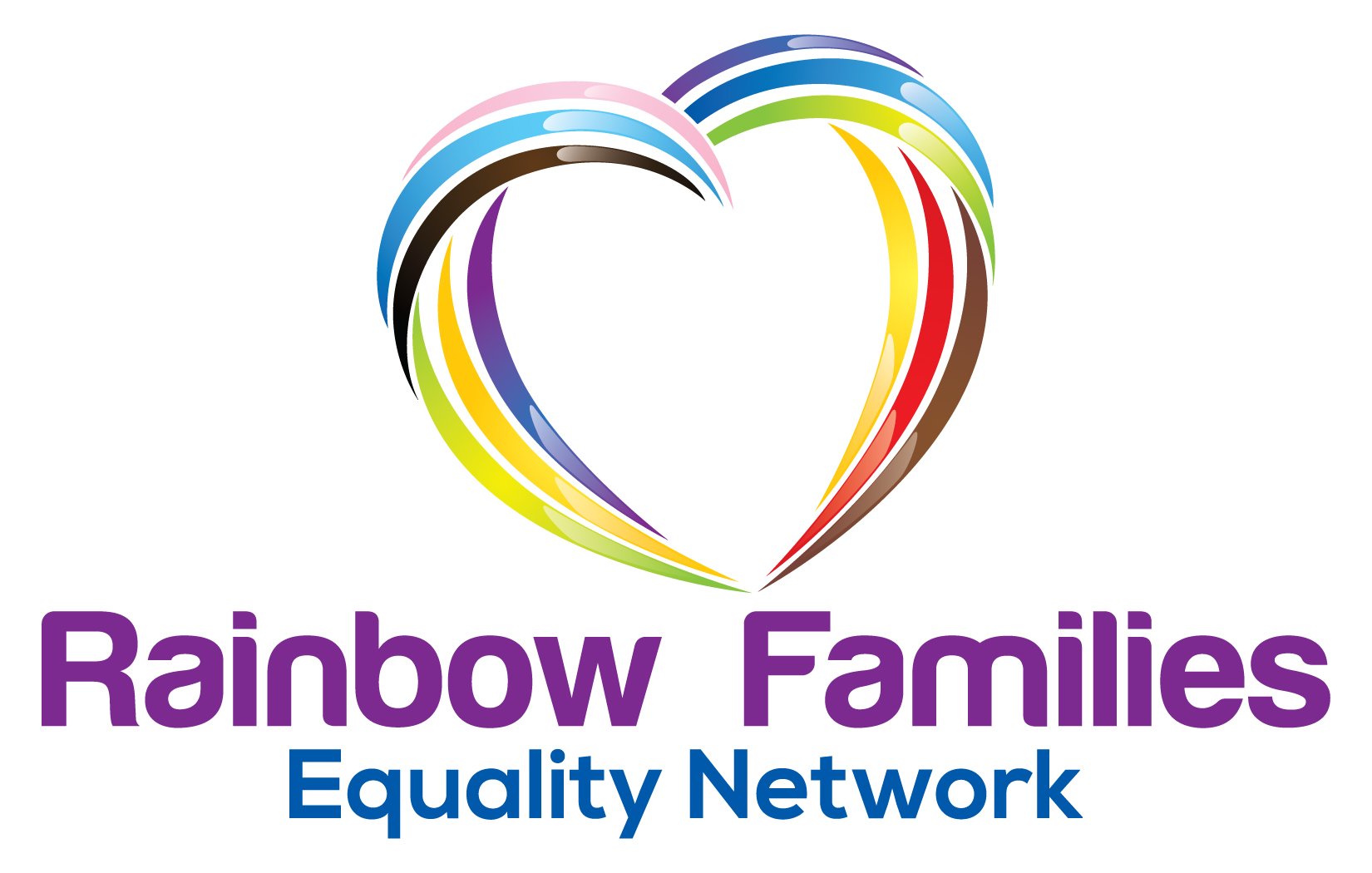RFEN Guardianship
This content is provided for information purposes only and is not legal advice. If you are unsure as to the legal status or benefit of any actions or have a complex situation that is not addressed here, please contact a Solicitor if you have access to one or contact FLAC www.flac.ie who may be able to assist you. Information last updated July 2020.
In the absence of legal recognition, guardianship can at least afford some level of protection to families by creating a legal link between a second parent and the child. (Second parent is used in this document to identify the partner of a birth parent).
It is very important however to understand that Guardianship is very different from parentage especially as parents can be automatically recognised as guardians but not all guardians are parents. Most significantly, guardianship ceases when the child turns 18 whereas as parentage is indefinite. This can have a considerable impact on inheritance and other matters. The table below shows the differences between Parent and Guardian. Information on who can be a Guardian and the Rights and Responsibilities of Guardians are set out separately below.
There are 3 different types of Guardianship that can be created relatively easily and below the step by step process is set out.
Full Guardianship
What does it mean?
The second parent becomes full guardian with all of the rights and responsibilities of a guardian from the date of the Court order.
How do I obtain this?
The second parent must apply to the Court for Guardianship and the legislation requires that the parent can show that on the date of the application, they:
(i) are married to or in a civil partnership with, or have been for over 3 years a cohabitant of, a parent of the child, and
(ii) have shared with that parent responsibility for the child’s day-to-day care for a period of more than 2 years.
To make an application:
Complete Form 58.30 Section 6C for Full Guardianship available on the Courts Service website under Guardianship here:
You can seek information on how to complete the form and get a date and time for the application to include on the notice by enquiring at your local District Court Office. You can find your local District Court Office by checking the Courts Service website and looking for Courts Offices by County here: http://www.courts.ie/offices.nsf/WebCObyCounty?Openview&l=en
The application must be on notice to:
- Other parent/all guardians
- Family and Child Agency (Tusla)
This means you must send a copy of the completed form to each of the above by registered post to their address.
Do I need a solicitor?
No but this does require a court application so if you have access to legal representation you may wish to have a solicitor make the application on your behalf.
Legal Reference: Section 6C of the Guardianship of Infants Act 1964 as amended
Temporary Guardianship in the Case of Serious Illness or Injury
What does it mean?
In the event that the birth-parent becomes incapacitated before the Child reaches 18 years of age the second parent becomes a temporary guardian of the Child.
How do I obtain this?
Download Form from here:
http://www.treoir.ie/wp-content/uploads/2018/03/nomination-form.pdf
Complete the relevant details on the form to nominate the second parent as a temporary guardian. Make sure the signatures are witnessed by another person. This can be any adult - a friend, a neighbour, etc. The second parent should then keep the form in a safe place so that it can be produced if incapacity of the birth-parent arises.
If a serious illness or injury occurs to the birth parent, complete Form 58.33 Section 6E for Temporary Guardianship which is available on the Courts Service website under Guardianship here:
You can seek information on how to complete the form and find out when is an appropriate date and time for the application to include on the notice by enquiring at your local District Court Office. You can find your local District Court Office by checking the Courts Service website and looking for Courts Offices by County here: http://www.courts.ie/offices.nsf/WebCObyCounty?Openview&l=en
The application must be on notice to:
- Other parent/all guardians
- Family and Child Agency (Tusla)
This means you must send a copy of the completed form to each of the above by registered post to their last known address.
Do I need a solicitor?
No. A court application will only be required if an incapacity arises and you should consider representation then but it is not mandatory.
Legal Reference: Section 6E of the Guardianship of Infants Act 1964 as amended
Testamentary Guardianship (be Deed or Will)
What does it mean?
In the event of the untimely death of the Birth-parent before the Child reaches 18 the second parent becomes a guardian of the Child.
How do I obtain this?
Any person can write their own will to set out how they wish their property, etc. to be treated after their death and to appoint a testamentary guardian for their child(ren). You can find information online for example
http://www.citizensinformation.ie/en/death/before_a_death/making_a_will.html and some stationers even provide template forms.
The most important part is that the Signature of the person writing the will is witnessed by two people at the same time and that neither of the witnesses actually benefit under the will. For testamentary guardianship the content of the Birth Parent’s will or deed should include a statement that on your death (of the Birth Parent) that you appoint the second parent as a guardian of the Child. There is no requirement for a Court application on death unless another existing parent or guardian choose to dispute the testamentary guardianship of the second parent.
Do I need a solicitor?
No unless a complex will is involved and you want to ensure receipt of multiple inheritances by multiple beneficiaries.
Legal Reference: Section 7 of the Guardianship of Infants Act 1964 as amended

Who can be a Guardian?
- The birth mother of a child born in Ireland is automatically recognised as a guardian.
- The biological father is automatically recognised as a guardian if they are married to the mother otherwise they must meet certain criteria as set out in section 6
- Spouses, Civil Partners or Cohabitees (living together for 3 years) who have jointly adopted are automatically recognised as guardians.
- Any other person who is not a parent who is:
-
- appointed by an existing guardian on their death;
- appointed by the Court under Section 6

Rights and Obligations of Guardians
Set out in Section 6C(11) of the Guardianship of Infants Act 1964 as amended as follows:
(a) to decide on the child’s place of residence;
(b) to make decisions regarding the child’s religious, spiritual, cultural and linguistic upbringing;
(c) to decide with whom the child is to live;
(d) to consent to medical, dental and other health related treatment for the child, in respect of which a guardian’s consent is required;
(e) under an enactment specified in subsection (12);
(f) to place the child for adoption, and consent to the adoption of the child, under the Adoption Act 2010.


Differences Between Parent and Guardian
PARENT
- Right to make all major decisions in relation to the child’s upbringing e.g. school, religion, etc.
- Duty to maintain the child until no longer dependent.
- Entitled to full inheritance rights as child and natural parent
- Full tax benefit available as parent and child (to the relevant threshold)
- Child automatically has legal relationships with relatives of parent e.g. aunts, uncles, cousins.
- Child entitled to tax reliefs on inheritance from relatives
GUARDIAN
- Right to make all major decisions in relation to the child’s upbringing e.g. school, religion, etc.
- Duty to maintain the child until no longer dependent.
- No automatic inheritance rights although provision can be made for the child through the guardian’s will
- Inheritance treated as 3rd party inheritance unless the guardian is married or civilly partnered to the parent. [Step-child step-parent relationships treated the same as natural parent and child for tax purposes]
- Child is not legally considered related to guardian’s relatives.
- Inheritance treated as 3rd party inheritance
